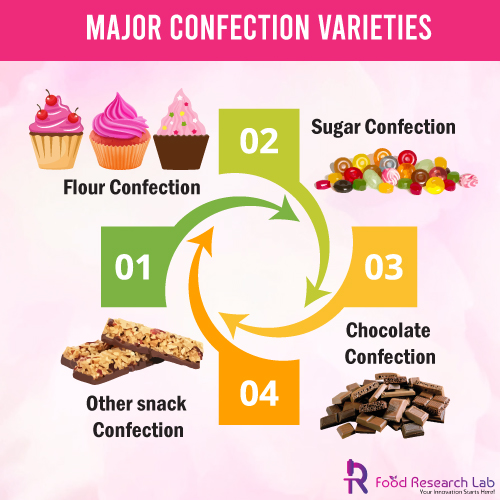
Effects of Confectionery On Children’s Health in UK
Confectionery Product Development In UK
According to a survey, the average child in the UK consumes 156 cans of soda, 208 bags of sweets, and 260 biscuits every year, totalling approximately 23kg of sugar. Despite eating healthier snacks, the average six-to-11-year-old consumes 260 packets of crisps and 208 chocolate bars every year, according to a study of 2,000 parents and children.
In addition, children will consume 260 bowls of sugary cereal, 208 glasses of fruit juice, and the same number of cake slices (208) as adults. These indulgences add up to 63 grams of sugar per day, or 5,738 sugar cubes per year, double the daily recommended maximum intake of five to six sugar cubes (24g), and set England’s public health standards.
Do Children Know The Quantity Of Sugar In The Food They Eat?
Food Research Lab with the help of confectionery product development experts conducted a behavioural experiment for one of our clients to introduce a new line of kids’ reduced sugar yoghurt products and found that children vastly underestimate the amount of sugar in their food. Children were asked to estimate the amount of sugar in a bowl of quick porridge, a peanut butter sandwich, and a glass of carbonated beverage.
They estimated that each item contained two to six sugar cubes, nearly half the quantity of sugar present in the products. Children were also surprised to learn that a fizzy drink can contain up to ten sugar cubes, even though most thought it was just five.

How Much Is Sugar Healthy?
A higher body mass index (BMI) later in life has been linked to excessive sugar consumption at a young age. Although consuming sweets on occasion is unlikely to pose severe difficulties in the near term, it is critical to instil healthy eating habits in children as early as kindergarten.
Instead of overloading their bellies with empty sugar calories, children require enough stomach room for nutritional foods necessary for growth and development. New food product development UK needs to be more healthy for children.
Adults should consume no more than 10% of their daily calories from added sugar (about 12 teaspoons or 48 grams). Children and teenagers should take no more than six teaspoons (25 grams) of sugar per day.
High Sugar May Affect Children’s Teeth
Aside from preventing diabetes and heart disease in the long run, eliminating added sugars can save children from enduring painful and costly dental care. Confectionery development companies has shown lot of changes in sugar confection.The consumption of sugary meals and beverages regularly exacerbates tooth decay, and dental problems can progress to deadly diseases if left untreated, even when simply baby teeth.
Identifying The Sugar Content In Food
Confectionery sweets development industry has to pay attention children’s snack products.Sugar is commonly found in foods sold to children. Sodas, candies, sweetened cereals, and fruit punch are all apparent sources of added sugar. Sugar can be found in products that appear to be healthy, such as granola bars, flavoured yoghurts, “healthy” cereals, pasta sauces, ketchup, and even applesauce.
You’ll be able to recognise additional sugar if you learn to read food labels. Simple substitutions such as unsweetened applesauce instead of sweetened or whole fruit instead of fruit cups packed in juice or syrup can help you cut off hidden sugar.
What Can Food Research Lab Offer?
Food Research Lab can provide you with a new snack and other food products that children might love, but the products are low in sugar. We are one of the leading healthy confectionery product consultants.
We use a variety of sugar alternatives that add to the taste of the food or beverage product and significantly contribute to children’s overall brain and body nourishment.
We are experts in developing
- Low sugar snacks and RTE food products
- Low calorie and high fibre food products
- Zero calories and zero sugar products
- Ready To Eat food product consulting
Conclusion
Most kids regulate their consumption based on internal hunger cues when healthy eating. Instead of rewarding (or punishing) youngsters with treats, caregivers should urge them to pay attention to how their bodies feel. Slowly eating, stopping when full, and not referring to meals as “good” or “bad” are helpful strategies to cultivate a pleasant connection with food.
Sit down for meals as a family and let kids help model healthy eating habits in the kitchen. Stickers or placing marbles in a jar to “store up” for a fun day at the zoo or playground are examples of non-food rewards.





